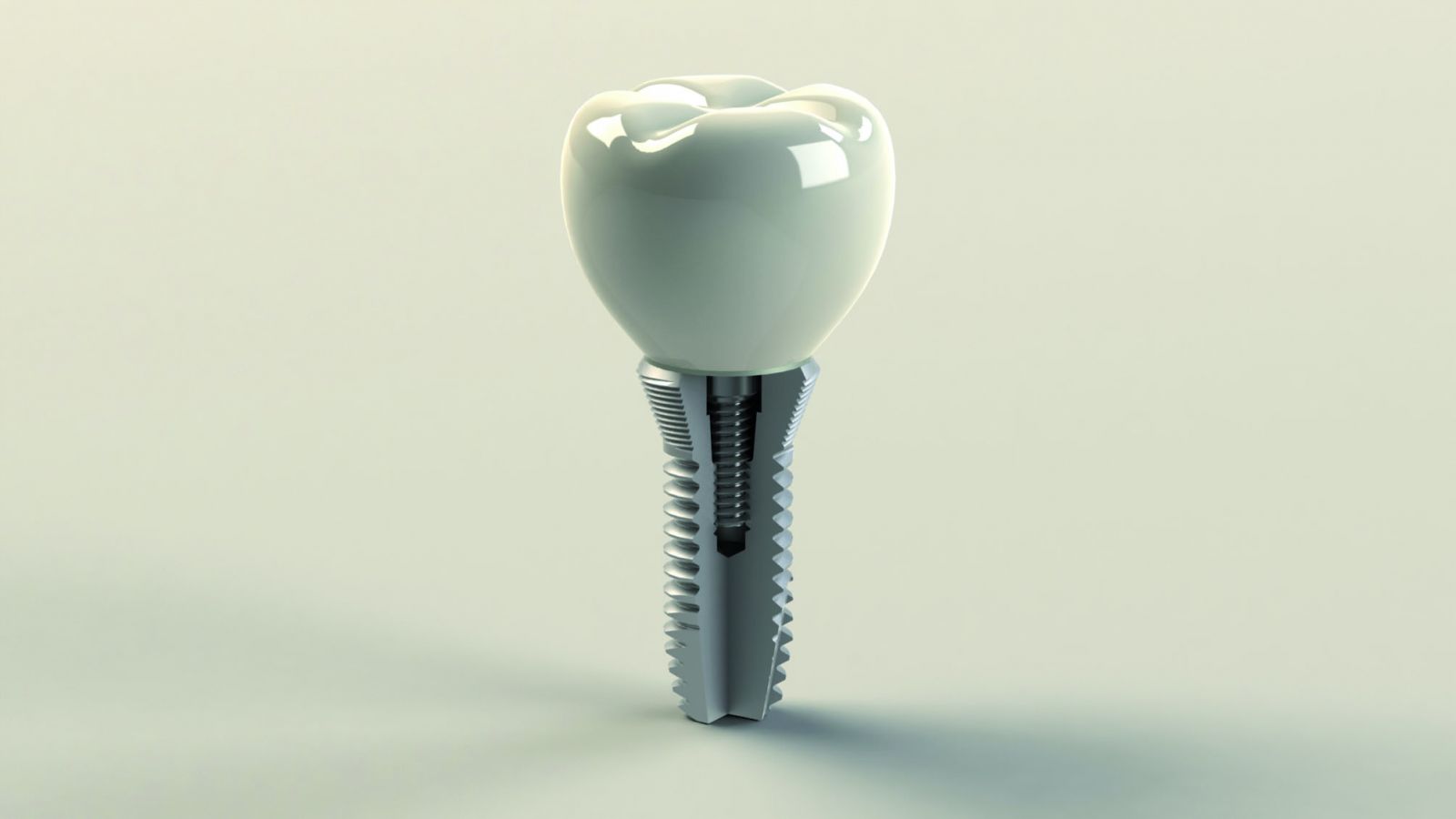
Dental implants are essentially artificial roots made of biologically friendly materials,which are placed surgically in the jawbone.They are made of chemically pure titanium with various coatings and are commonly screw or cylinder shaped.
1. Relevance
It can be undoubtedly stated,that dental implants are among the most important steps forward in the field of dentistry. Today’s implantology involves precise diagnostics,safe surgical procedures,supreme technological background and predictable results.Dental implants are a real alternative to conventional bridges and partial or total dentures.In the case of a single missing tooth the dentist does not have to trim the teeth on either side of the gap to make a bridge;on edentulous jawbones implants make possible – even in the worst of the cases – to make perfectly stable overdentures supported by two or four artificial roots.
2. FAQ
What is a dental implant? What is the surgical procedure like? Can the implant be rejected? What do I have to do after the surgery? How can I keep my implants clean?
Many questions,that have to be clarified during the first consultation.
a.) Who is suitable for dental implants?
In general everyone who would like to have this solution,and has no contraindications.Basic requirement is to be medically fit,to have enough bone amount and healthy gums.Patients must be aware of the fact,that to maintain dental implants they need to thoroughly brush and floss them regularly,and must attend the yearly check ups.Professional cleaning and periodontal care is essential for the long-term success and sustaining guarantee.
Contraindications are among others uncontrolled diabetes,smoking,excessive alcohol consumption and general diseases which may affect tissue healing.
b.) Why should I have implants?
- because it is a real alternative to conventional crowns and bridges
- because healthy teeth have not to be filed
- because instead of having rocking,unstable dentures,patients can get perfectly stable overdentures
- because implants slow down shrinking of jawbones caused by loss of teeth
c.) What can be done if there is not enough bone?
In these cases we make a so called bone substitution.With the procedure we build bone,so that dental implants can be placed.The technique involves the adding of artificial bone to the jaw,and waiting for the graft to integrate perfectly with the own bone of the patient.The healing requires usually 6 months,implants can be placed afterwards.In some of the cases bone substitution and implant placement can be performed at the same time.
Most common type of bone substitution is the so called sinus lift,or augmentation of the sinus floor.It involves the lifting of the sinus membrane,and the placement of artificial bone between the mucosa and the base of the sinus;in this way we gain enough space in depth to place implants,which would otherwise be impossible in a part of the mouth where teeth are so commonly missing.
Important:integration of bone graft cannot be guaranteed.In the unlikely case of failure,process can be repeated,or an alternative tooth replacement option should be chosen.The reason of failure although is quite always smoking,excessive alcohol consumption and/or neglected oral hygiene.
d.) What is the process of implantation?

Consists of several steps.First an oral examination and a CT scan is carried out,to be able to plan perfectly the place and the size of the implant.The insertion of the implant – usually done under local anesthesia – involves an incision on the gums to expose the bone;then we drill a hole and place the implant in it.The gum is then stitched,and left to heal while the bone grows around the implant.A temporary abutment can be in some cases placed on the implant to allow the gum tissues to heal.
Stitches are removed generally 10-12 days after surgery.
Implant exposure:after a healing period of 16-20 weeks we insert the healing abutment.This is a screw that helps the gum form perfectly before placing the final solution.
Final fitting:based on several impressions the dental technicians prepare the final prosthetic solution for the patient.Depending on the number and position of the implants,it can be implant retained crown,bridge or overdenture.
e.) What can I expect after surgery?
Bleeding,swelling and a certain sensitivity might arise after the surgical process.Every symptom can be controlled by taking painkillers,antibiotics,using ice-pack and following the instructions of the dentist.
f.) Will I be toothless?
No;of course we provide our patients with temporary solutions.
g.) How do I care for my dental implants?
To maintain dental implants patient needs to thoroughly clean and floss regularly.We will give you specific advice on how to care your dental implants.You need to attend the regular check ups as well.
h.) Side effects,complications
Although implantation is nowadays a routine intervention and a safe procedure,as all surgeries it carries elements of risk.Complications of any surgical procedure can include excessive bleeding,unexpected reaction to the anesthetic or infection.You will be prescribed antibiotics and an antiseptic mouthwash to reduce and minimize the possibility of an infection.Examples of side-effects can be feeling sick as a result of the anesthesia and some swelling and discomfort around the implant area.
Important!Smoking automatically means limited guarantee! Alcohol abuse,uncontrolled diabetes also lead to reducement of guarantee.Patients must attend the yearly check-ups;regular professional cleaning and periodontal care is essential for the long term success and sustaining guarantee.